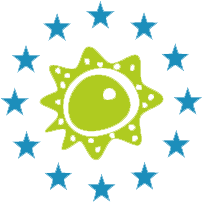ESCAIDE 2022 - A summary of Day 3
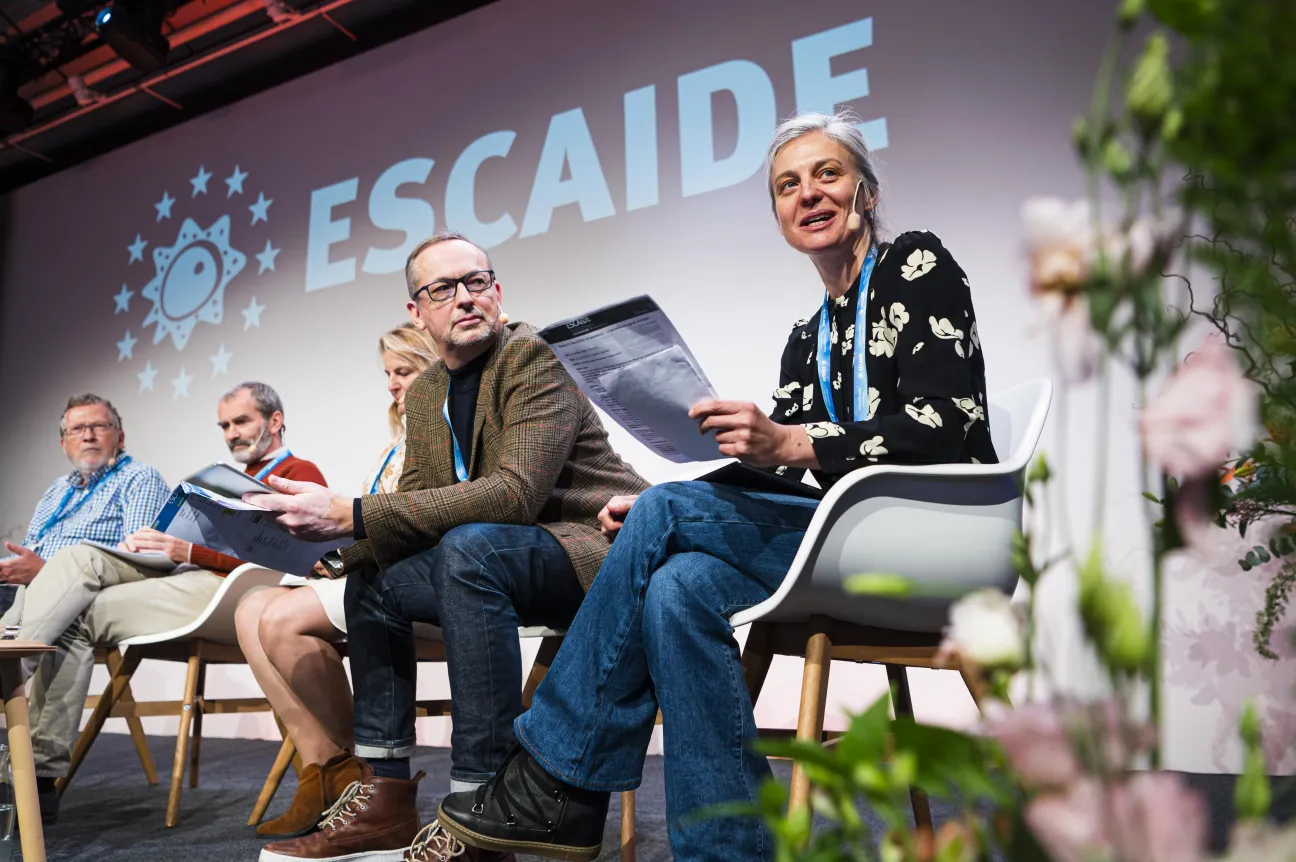
The third day of ESCAIDE opened with this year’s final plenary, which illustrated how data from electronic health records (EHR) can contribute to communicable disease surveillance, how genome sequencing has contributed to our assessment and response activities relating to COVID-19. In light of recent advances following the COVID-19 pandemic, speakers also discussed the implications for the future surveillance of acute respiratory infections. Silke Buda discussed sentinel ARI/SARI surveillance in Germany, where electronic health records are used in primary and secondary care, and data is collected through specific networks, anonymised and centralised. According to Buda, integrated surveillance allow for timely detection of trends in respiratory infections. Søren Alexandersen talked about COVID-19 sequencing in Denmark, large scale PCR testing and how PCR testing capacity is crucial to ensure efficient vaccination roll-out. Whole genome sequencing in Denmark allowed researchers to study human-to-mink transmission, identify outbreaks, perform contact tracing, and give forecasts on what variants would be dominant. Meanwhile, Fernando Simon described the ARI-SARI surveillance during the COVID-19 pandemic in Spain, and spoke about the importance of systematic collection, collation, analysis and dissemination of data for decision-making. Fernando stressed importance of simplifying surveillance systems and integrating clinical, laboratory and public records in the same system.
"In the past, taking 500 PCR tests was considered quite a lot. The COVID-19 pandemic was different. Danish testing initially started with 2000 samples/day quickly picking up the speed (90k-270k samples a day at maximum).” – Søren Alexandersen (SSI, Denmark), speaking in Plenary E on the scale-up of the Danish genomic surveillance capacity during the coronavirus pandemic.
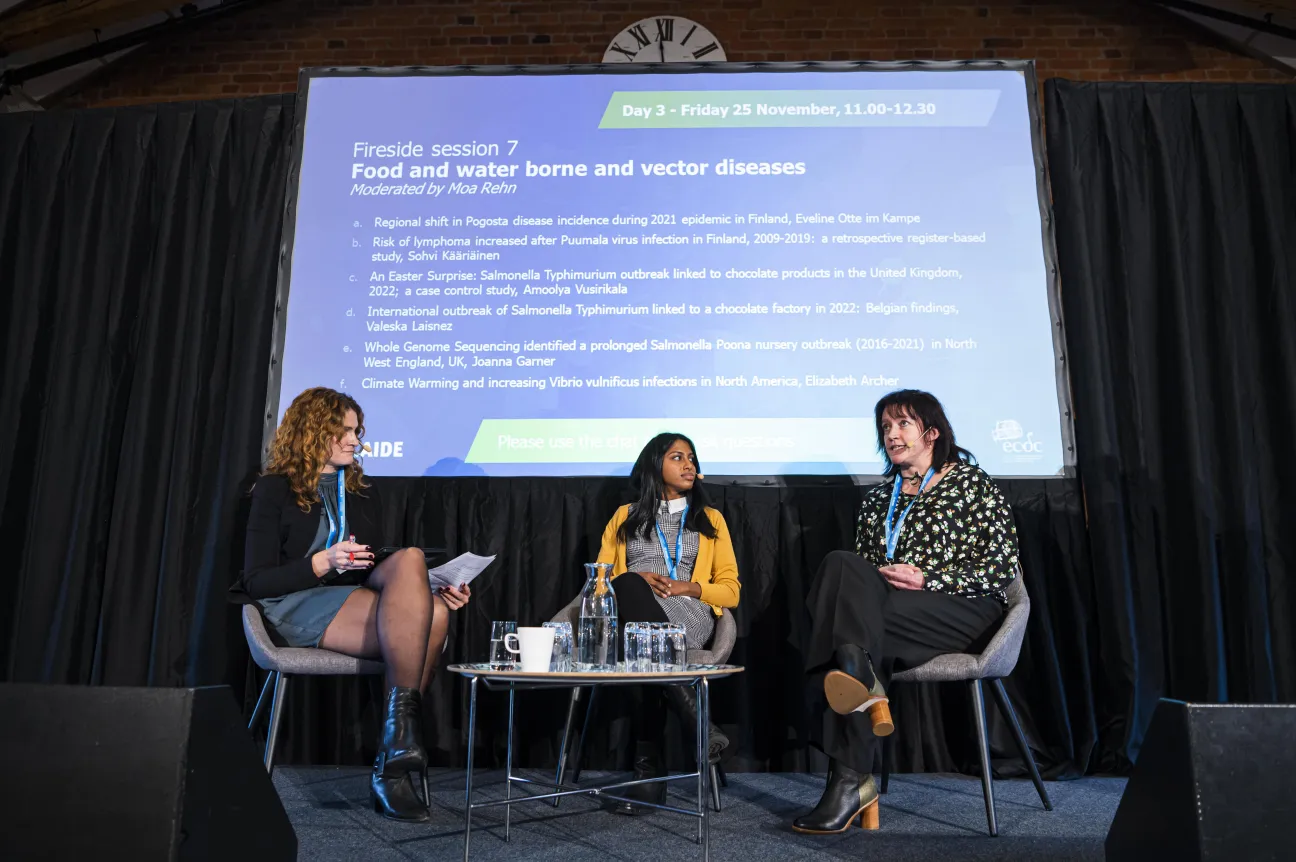
Today’s fireside sessions and poster tours included a mix of research on the COVID-19 pandemic, food- and waterborne disease and zoonoses outbreaks, surveillance, and late breakers. One interesting study at the poster tour on COVID-19 burden of disease looked into the effects of the pandemic on mental health, indicating that effects were more severe on younger people. In the food- and waterborne diseases session, two presentations were given, from the United Kingdom and Belgium, showing how their coordinated their investigation of a Salmonella Typhimurium outbreak linked to chocolate products.
"Spain is really committed with preparing ESCAIDE. In Spain we really believe in building the European public health community and we think that ESCAIDE is one of the best ways to do this." - Fernando Simón, Director of the Coordination Centre for Health Alerts and Emergencies of the Ministry of Health, on the announcement of the hosting of ESCAIDE 2023 in Barcelona.
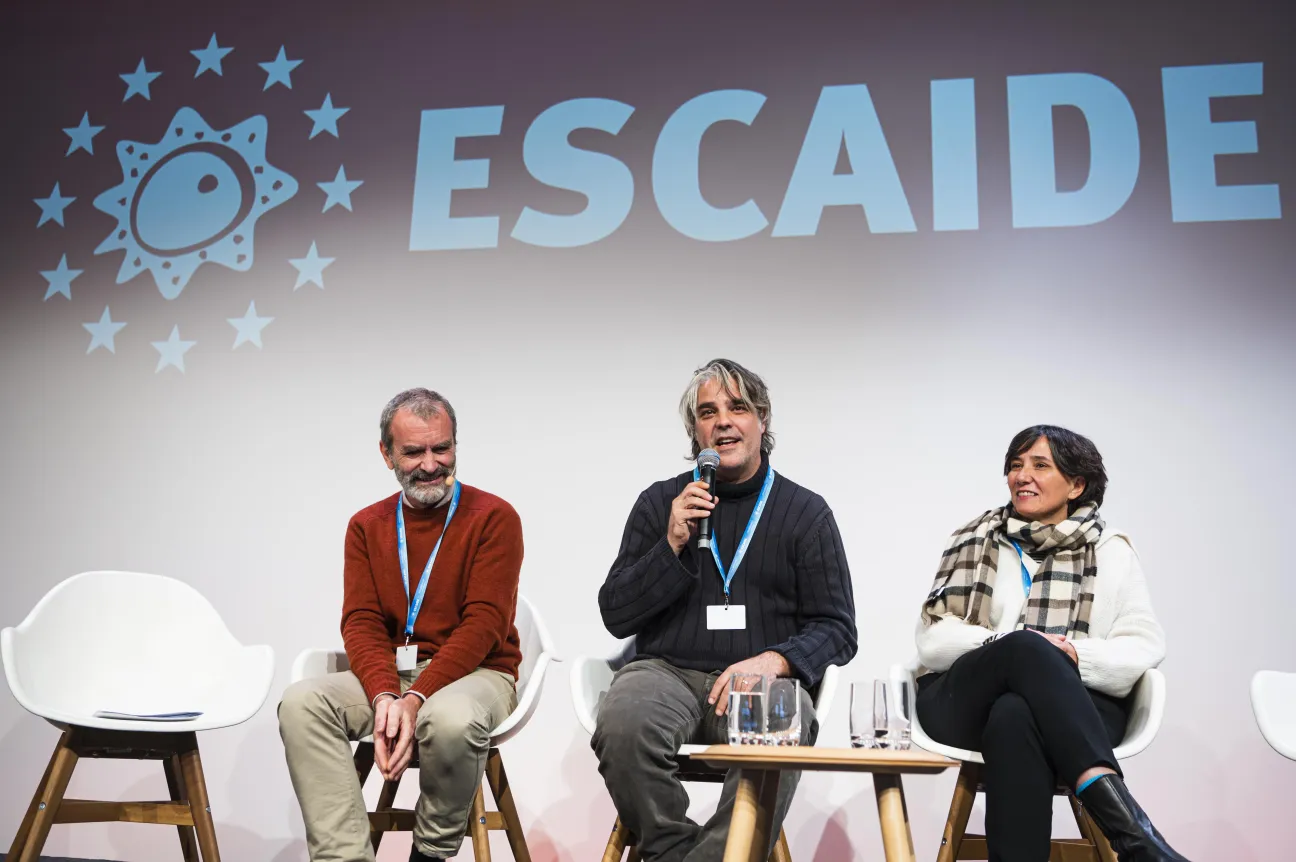
In the afternoon, speakers at the social sciences session discussed the use of social science methods to support prevention of control of infectious diseases in Europe. ECDC behavioural expert John Kinsman introduced the session by sharing ECDC findings on the geographical disparities in the EU in capacity in social and behavioural sciences, with the majority of the capacity being in the North and Western side of EU and a gap in the Central and Eastern side. Participants in this session presented projects involving social sciences and public health and shared their experiences and insights. Danny de Vries from the Amsterdam Institute for Global Health and Development emphasised that while progress has been made over the past two years, more is needed to bring social and behavioural sciences more fully into the decision-making process.
ECDC Director, Andrea Ammon, together with representatives from Spain including Fernando Simón (Ministry of Health, Spain), announced the successful bid from Spain, to host ESCAIDE 2023 in Barcelona. The conference will also travel to Warsaw, Poland in 2025 and Prague, Czechia in 2027, returning to Stockholm in intervening years.
"I have been suffering a little from "not in Stockholm syndrome", but its wonderful to have this hybrid opportunity. I cannot easily travel as I have a baby, so attended online and it has worked really well for me. I still feel I have been able to participate, with interactive sessions, and benefit from the learning." - Georgia Ladbury (Public Health Scotland) giving reflections on ESCAIDE 2022 as an online participant in the wrap-up session.
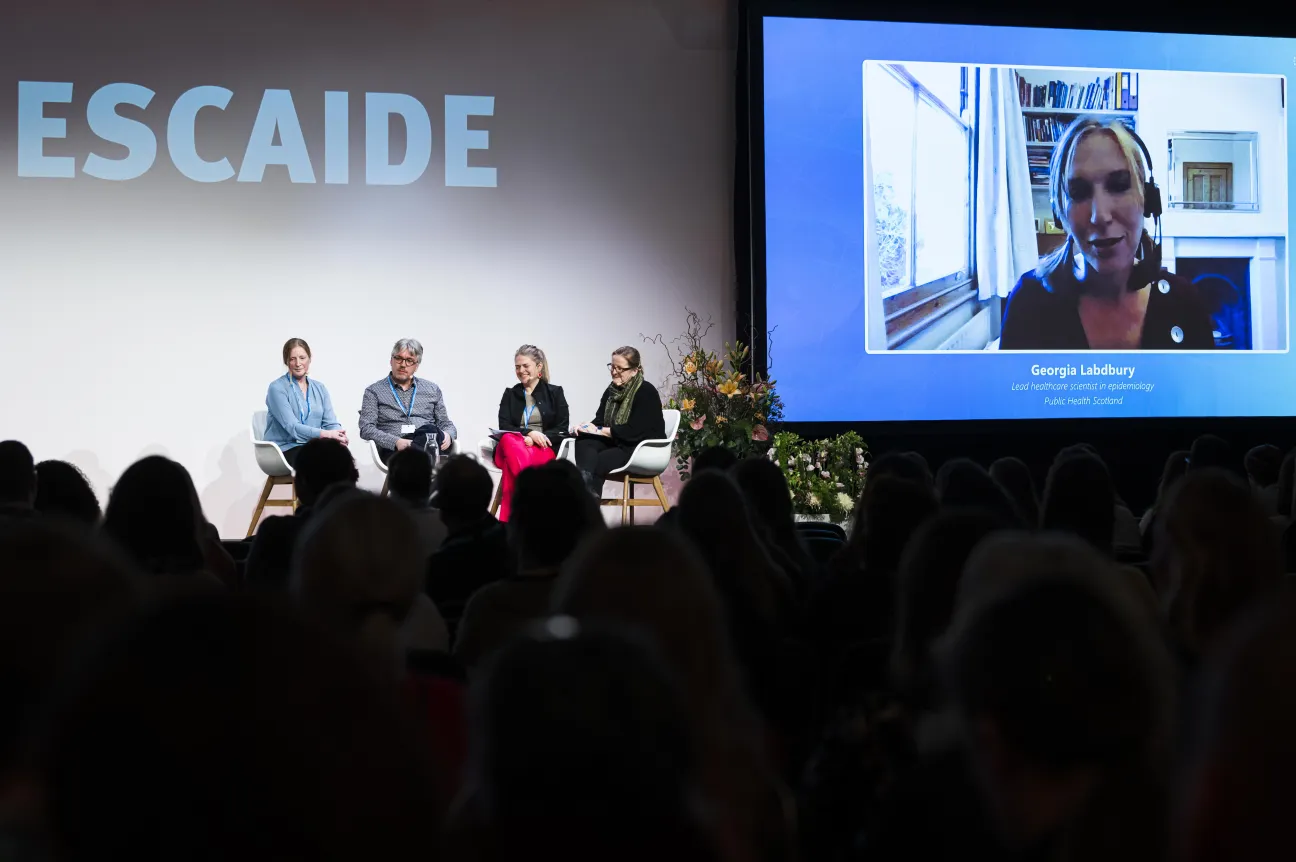
Towards the end of the day, ESCAIDE concluded with a wrap up session. Speakers agreed that ESCAIDE showed how much was learned during the COVID-19 pandemic. This includes a deepened understanding the interdisciplinary nature of public health, possible improvements in data collection, the importance of collaboration, and how to communicate with the public. Panelists agreed on the value of the hybrid format for ESCAIDE which allowed for more interactive experiences both in-person and online, and are more accessible. Stine Nielsen, member of the ESCAIDE Scientific Committee, described ESCAIDE as a special place, and highlighted the value of allowing people to attend online for free. Speakers also celebrated the success of this year’s conference, with 2400 registrations online and 500 in person.
The winners of the EAN photo contest and best presentation were announced in the awards ceremony. The winners were presentation "Wastewater surveillance for SaRS-CoV-2 closely mirror incidence data: results from national surveillance data in Denmark, October 2021-May 2022" by Oliver McManus, and the picture by Marius Linkevicius, "Planet Measles".
“We need political will and loads of investments: we need to tell our politicians that if they want to be better prepared next time, they need to invest now in these preparations.” – ECDC Director Andrea Ammon, closing ESCAIDE 2022.
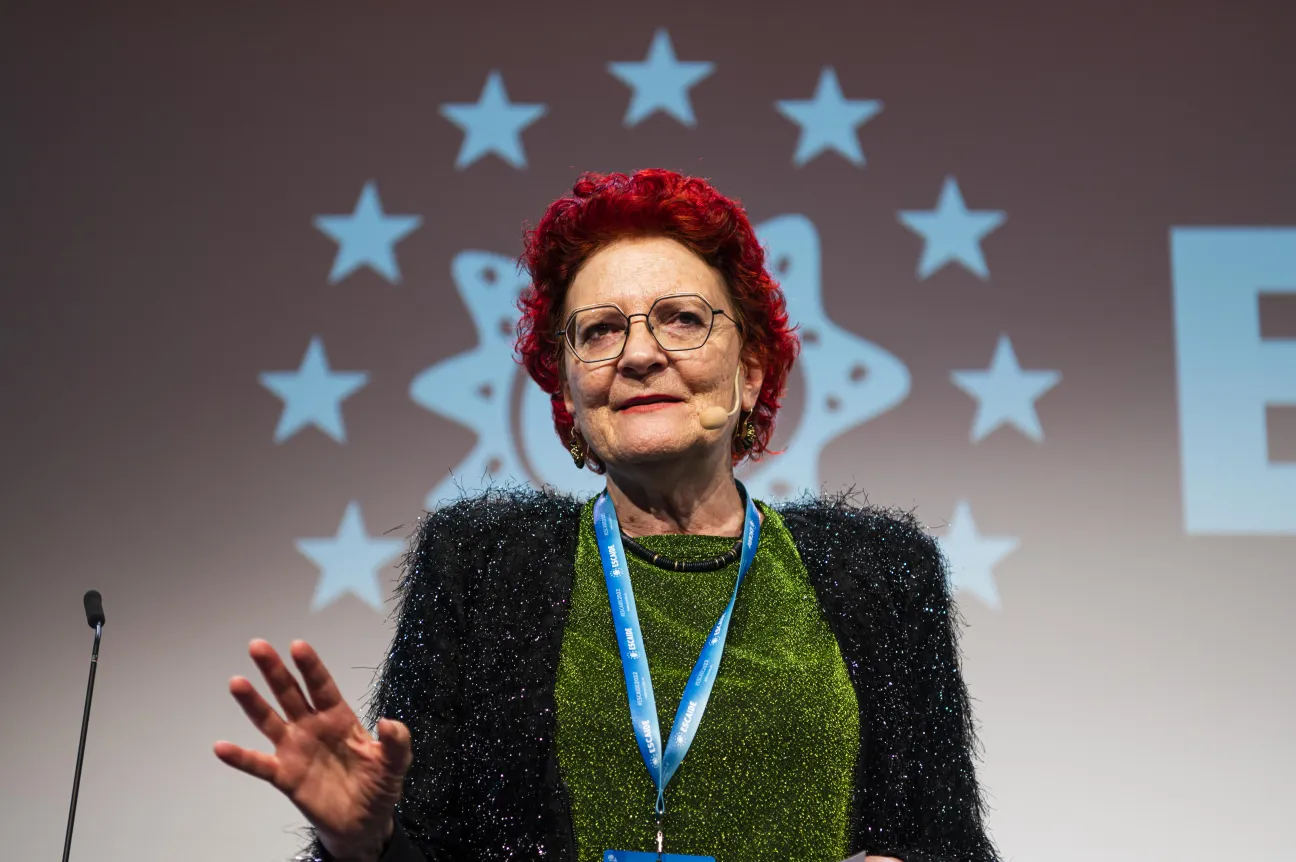
In her closing speech, ECDC Director Andrea Ammon highlighted how the pandemic changed the landscape in how we collect and analyse data, and how we communicate. She also emphasised the need to become more multidisciplinary and embrace the One Health approach, cooperate more internationally, and invest to prepare for future pandemics.
ESCAIDE 2022 Vox Pop - Day 3 - YouTube
Share this page
